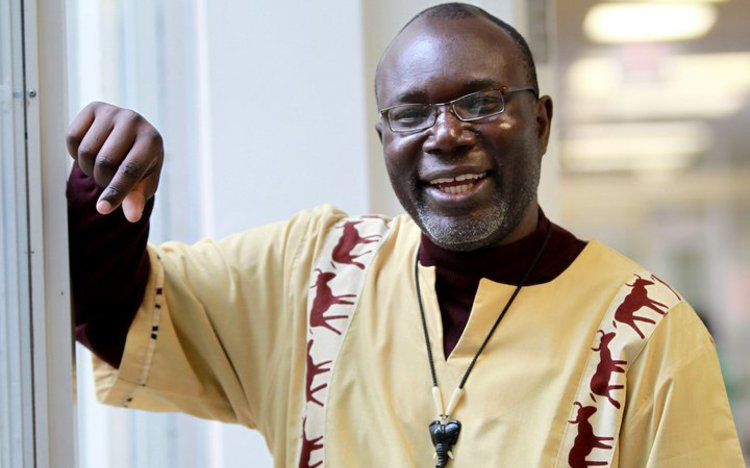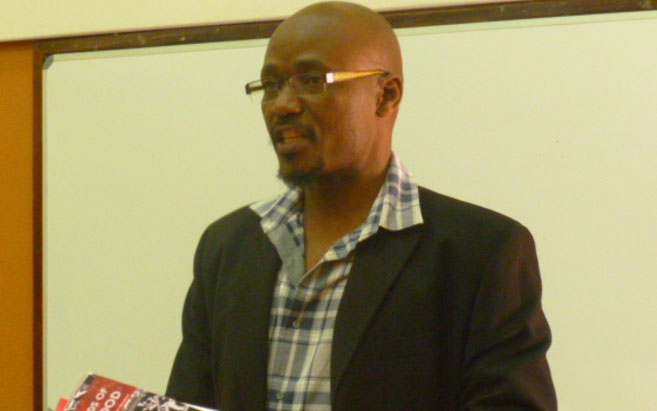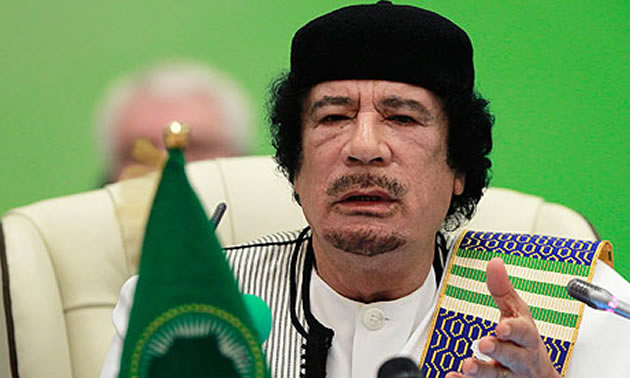‘African writer’ debate rages on

Gracious Madondo Arts Correspondent
Who and what is an African writer? The question calls for both a descriptive and definitive identity label. But is the identity of an African writer static? Is it derived from descent, geographical space or thematic issues?Fifty-five years after the June 1962 Makerere University “Conference of African Writing of English Expression” the debate on what constitutes African writing or who constitute an African writer has remained a contested terrain.
While many regard the Makerere conference as a milestone in African literature dealing directly with the legacy of colonialism, others believe it achieved nothing. However, its significance lies in the attendees. It was a rich list comprising of Chinua Achebe, Wole Soyinka, Ezekiel Mphahlele, Lewis Nkosi, Ngugi waThiongo (then known as James Ngugi) and Rajat Neogy (founder of Transition Magazine).
Thirty-seven years after independence, the debate on who is an African writer has refused to go away in Zimbabwe as evidenced by the recent discussion on a “Writing Issues Only” Whatsapp chat group.
The “Writing Issues Only” chat group is a platform where Zimbabwean writers, literary critics and journalists discuss and exchange ideas on an array of issues. It is a ‘who is who’ in terms of those with a keen interest on literature and is ably marshalled by US based Professor Emmanuel Sigauke and Zimbabwe Writers Association Secretary General Memory Chirere.
Prof Sigauke is the author of “Mukoma’s Marriage and Other Stories” and is the founder of the online Munyori literary Journal and is on the boards of the Sacramento Poetry Centre and Writers International Network Zimbabwe. A University of Zimbabwe English Literature lecturer, Chirere is the author of Somewhere in This Country (2006), Tudikidiki (2007), Toriro and His Goats (2010) and together with Professor Maurice Vambe compiled and edited the only full volume critical text on Mungoshi called: Charles Mungoshi: A Critical Reader (2006).
Albert Nyathi, Dr Musayemura Zimunya, Professor Robert Muponde, Chririkure Chirikure, Virginia Phiri, Monica Cheru-Mupambawashe, Lawrence Hoba, Tinashe Mukucha, Tanaka Chidora, Professor Ruby Magosvongwe, Kizito Muchemwa, Aaron Chiundura Moyo, Farayi Mungoshi, Phillip Chidavaenzi, Dakarai Mashava and Davison Maruziva are some of the local writers who are part of the group. So I can be forgiven for taking very serious any discussions in the chat group for it comprises some characters currently shaping the scope of our country’s literary landscape.
From the onset of the discussion, two groups emerged. One group was adamant in its refusal of the “African writer” label describing it as not only conscripting, limiting but burdensome and synonymous with degrading racial connotations. On the other side, was a group which sees no problem in being called an “Africa Writer”, arguing that it was an identity they were proud of as it historically and culturally enriches their creative works. Being Africa, is who they are not by default but by descent as part of the black race and by the geographical space they occupy called the African continent.
Both sides appeared to have valid reasons for rejecting or accepting an “African Writer” label. While not totally disentangling themselves from who they are as a people, those against the label appeared to agree with Ethiopian literary critic Maaza Mengiste who is of the opinion that “too often the continent’s writers are quizzed about their identity rather than the world they create.”
Mengiste’s statements were contained in an article published in the 2013 Guardian called “What makes a “real Africa?” She raised a very important issue. On the shortlist of 14 Caine Prize for Writing, three out of five live in the US and one still has a US citizenship. Even the winner of the 2013 edition, Tope Folarin was born in America. So who is a ‘real African’? Another author who has also questioned the label of an “African Writer” is Taiye Selasi of Ghanaian and Nigerian origins. Selasi was born in London, England and raised in Brooklyn, Massachusetts.
In an article published in the UK’s The Guardian, Selasi recounts of an incident: “At a recent conference on African literature . . . I sat on a panel with two other female writers. A question was asked almost immediately: do you consider yourself an African writer? It seems that every new writer with any remote connection to the continent of Africa, either willingly or unwillingly, has first to wrestle with this question of identity before talking about what should matter most: their book.”
In one of her seminal article, Selasi actually challenges the whole notion of African literature when she writes that: “African Literature Doesn’t Exist.” At first value, this sounds cantankerous or blasphemous but she defends well her standpoints. She argues that by “African literature” she is referring not the body of written or oral texts produced by storytellers on and from the continent but rather to the category.
In her view, African literature is an empty designation, as in Asian Literature, European Literature, Latin-American Literature, South American Literature, North American Literature and so forth. “My very basic assertion is that the practice of categorising literature by the continent from which its creators come is past its prime at best. Our dogged insistence in doing so, in the case of the African continent foremost betrays a disregard both for the complexities of African cultures and the creativity of African authors. If literature is, as its finest practitioners argue, universal- then it deserves a taxonomy neither based on nor supportive of racial distinction but reflective of the working s of the race- less human hear.”
And far much earlier before Selasi had raised the red flag, our very own Charles Dambudzo Marechera had also questioned being categorised as an African writer. In “African Doppelganger: Hybridity and Identity in the Work of Dambudzo Marechera” (1997) published in the Research in African Literatures, David Buuk notes that the Vhengere born author has remained on the margins of critical studies of African literature partly due to early death but most importantly because of his refusal to claim any specific “African” identity.
It appears as though Marechera anticipated the categorisation of post-colonial identity as heralded by contemporary critics of post-coloniality when he declared that he was the “doppelganger whom, until (he) appeared African literature had not had yet.”
Marechera advanced the view that either one was a writer or not and swore on those writing for a specific nation or race. Individualism hankering on the Bohemian lifestyle seemed to have been the hallmark of Marechera’s inspiration mostly influenced his exposure in England. Paradoxically, while Marechera might have vehemently refused to be put in any category, his books reflected his own African experience growing up in colonial Rhodesia.
Awarding winning author, Lawrence Hoba who is part of the Writing Issues Only chat group said he has no qualms in being labelled an African writer because before being an author he is an African. “Maybe the major issue of contention is whether if by being referred as an African writer one is sentenced to writing only for African audiences. But since in this case African is meant only to denote where one has originated from, I neither find the term improper or insulting. Rather, it is a tag I would not want taken away from as an author,” said Hoba.
Hoba said only those who are not proud of Africans believe that the label carries some kind of plague. He gave the example of Colombian writer Garcia Marquez whose writings have not been affected by his origins and identity. “I don’t agree with those who say there is nothing like African literature. What would they call stories about Africa? Compartmentalisation is after all not a bad thing,” Hoba said.
Another awarding writer, Ignatius Mabasa, author of “Mapenzi” (1999) said although he had no problem in being identified as an African author, the sheer size of the African continent calls for specificity as Africans were not homogenous. “We are African writers but we each have our own languages that shape and influence how we think and tell our stories. It is a lie that being an African writer is an inhibition. As Charles Mungoshi puts it in “Waiting for the Rain” we need to beat our own drum. But having said so, we are each shaped by different personal experiences and because of that, each one of us African or whatever are also shaped by personal and not the collective,” Mabasa said.
University of Witwatersrand Professor Robert Muponde was somewhat ambivalent insisting that such a debate was unhelpful as identity was fluid. “I do find the debate unproductive and narcissistic in that regard. For me if anyone, be it a China man or Eskimo, wants their writing to be African, they should be encouraged by being afforded the opportunities that any permanent resident is availed elsewhere in the world. But they should be compelled to pick up a totem or adopt a clan in order to be called Africa,” said Prof Muponde.
Just like the 1962 Makerere University Conference, the debate on the Zimbabwe Writing Issues Only platform was inconclusive in its definition of whether African writers should accept the label of being African writers. What remains uncontestable is the changing literary terrain in post-colonial Africa where some of its authors like Nigerian Chimamanda Ngozi Adichie, Bulawayo born NoViolet Bulawayo, Petina Gappah, Tendai Huchu, Brian Chikwava are domiciled in foreign lands and not on the continent.
Some have assumed citizenships of the countries of their residents and would it be fair to continue hamstringing them with such a label?
Interestingly, to the majority of authors domiciled outside the continent, home is still (Africa) or their countries of origin and not their adopted homes. It is this home that is the reservoir of their narratives. Rarely do their narratives focus entirely on their new adopted homes. Maybe as suggested by NoViolet Bulawayo we probably ‘need new names’ that aptly capture the current post-independence dynamics.












Comments